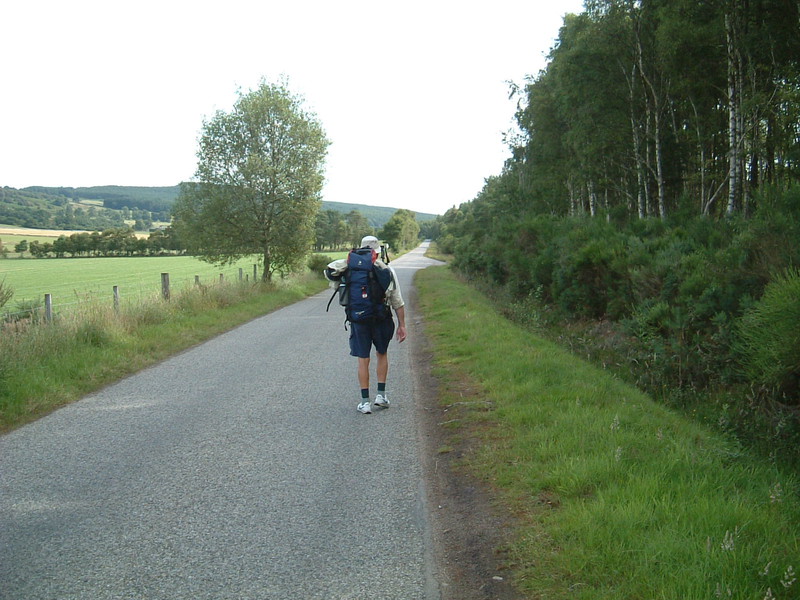
It's taken me three days to realise it, but I'm actually enjoying myself again. The central canals, the West Highland Way and the Great Glen Way managed to grind my body down and take most of the fun out of the walking, but since leaving Inverness I've been gradually recovering and finally I think I'm back to normal. Today's walk might have been a long 20-mile hike along minor and major roads, but I loved every minute of it and have come away with some wonderfully warm memories of the northeast of Scotland.
Again, walking with Barry helped enormously. Last night we ate in the Railway Hotel in Alness and shared a few beers before the Sunday evening karaoke kicked in and obliterated the conversation, and today we teamed up once more, not least because Barry doesn't have a map for this part of the walk (he was originally going to buy them en route for this section, but it makes more sense to share mine). Having someone to natter with as the miles and miles of tarmac slowly glide past is a treat, especially after spending most of the last 1000 miles by myself.
Another reason I'm enjoying walking again is the environment. It's never even crossed my mind to think what the far north of Scotland is like, but today I finally walked into the northeastern highlands and it's a delightful part of the world. Yesterday, while leaving Dingwall, I was amazed to see a road sign pointing along the coastal road to 'The North' – I normally associate this kind of sign with the M1 around Watford Gap – but the North it is, and it's a big change from the mountains and midges of the western highlands. Hell, I like it, so it must be different...
Winding Lanes
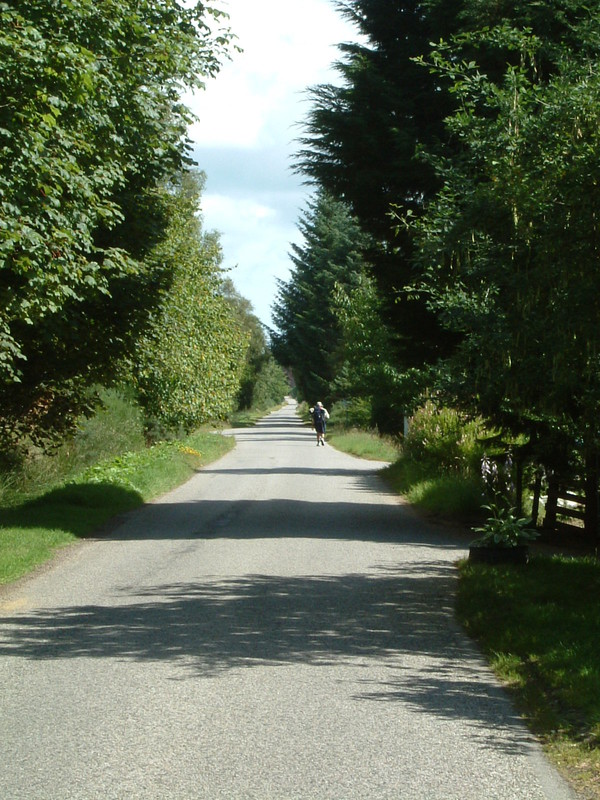
Today's route stuck completely to the tarmac, following a succession of minor roads northeast to Tain before joining the A9 over the Dornoch Firth Bridge and turning east along a minor road for the little town of Dornoch. On the map the walk didn't look that interesting, but for me it was a throwback to the lane-hopping in Cornwall and Devon, and with the sun beating down and the sky throwing up the most beautiful cloud displays, the miles rolled past.
It was a million miles from the harsh gloominess of the West Highland Way as seagulls squawked over our heads and the warm smell of the sea drifted in on the breeze. It's not unlike western Cornwall up here in the northeastern corner of the country, the major difference being the light; the sun is much lower in the sky, and it manages to combine the friendly glow of the summer sun with the shadowy contrast of a winter's day. But apart from the light, the coastal farms and rolling sea views are hauntingly similar to the opposite end of the country.
There are also no midges here, at least none to speak of. I can't tell you how pleasant it is to be able to stop for a bite to eat, only to find that you can stay in the same place for more than a few minutes without being eaten. Perhaps this goes part of the way to explaining why this area is dotted with wonderful houses, most of them with manicured gardens to match. Settlements might be few and far between but there are individual houses scattered all over the place, and they're modern too; I don't know where the money's coming from, but it seems that the northeastern highlands are quietly turning into a very desirable area.
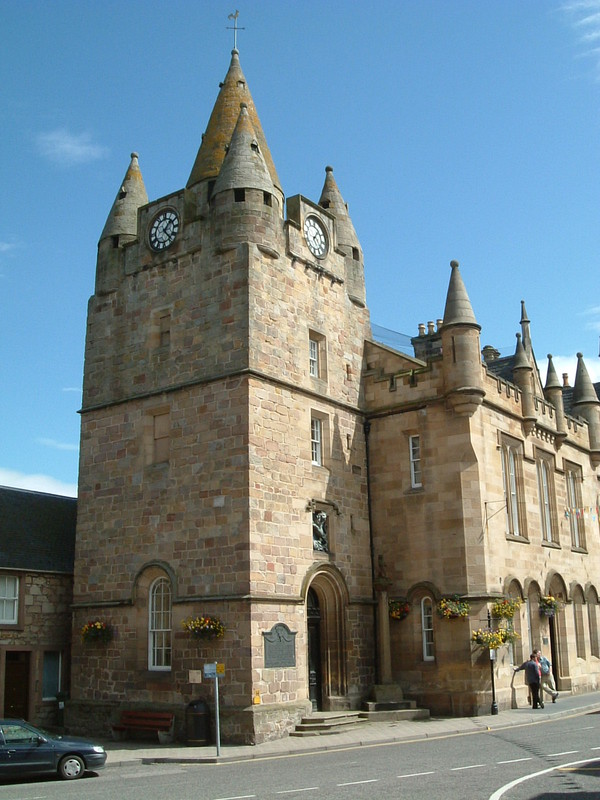
It's possible that the oil rigs sitting off-shore might have something to do with it. I saw my first rig yesterday, sitting proudly in the middle of the Cromarty Firth, and this morning it looked as if it had spawned a whole family overnight. Oil rigs are hardly pretty things, with their big, clumsy legs and spindly central towers, but when they're clumped together in groups there's something sinisterly alive about them, as if they're squatting there, plotting. The Cromarty Firth is a nesting ground for rigs; they're built and repaired over in Nigg, at the eastern end of the firth, before being floated out into the firth, where they drop anchor and wait to be called up for active duty. It's then that they're pulled out into the North Sea, where they lower their legs down to the sea bed, drill into the sea bed and suck the wells dry. Meanwhile the view from the road is of golden barley fields with oil rigs sticking up out of them, the glittering waters of the firth hidden behind the gently rippling ears of Scotland's favourite grain. It's a great view.
So there we have it: 20 miles of walking and precious little to say except the views were great, the walking easy and the weather kind. Oh, and I should also mention that the towns of Tain and Dornoch are very attractive and the people friendly, and that my feet are feeling much better (or, perhaps more accurately, the drugs are still working). I can't really say anything else about today, and after the cathartic whinges of the last few hundred miles, that's a very pleasant feeling.
Missing Link
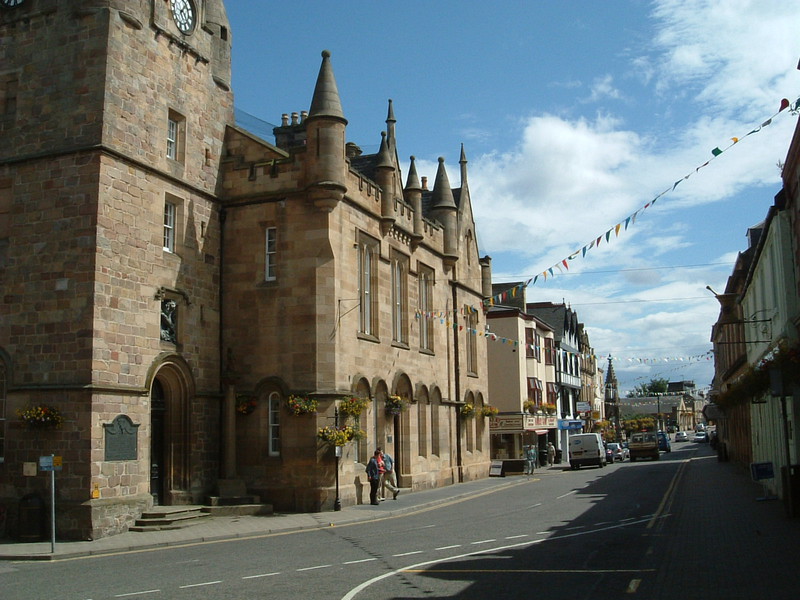
I should, however, mention the wonderful cultural exchange we experienced in the St Duthus Hotel in Tain, the pub we completely failed to wander past after our sandwich break down the road. After Tain the route follows the A9 for four miles, sticking to the grassy verge but within spitting distance of some extremely heavy and fast-moving lorries, and although it doesn't look too bad on the map, a pint of anaesthetic before hitting the tarmac was far too attractive to pass up. So we dropped our packs outside the pub and Barry went inside to retrieve a couple of pints of Velvet.
Suddenly a huge and amazingly ugly dog leapt out from under a nearby table, lunging at me with the kind of deep bark that signifies a Very Big Canine. Luckily a stout chain yanked him back with a start, just as one of the women at the table yelled, 'Go on Soldier, fookin' kill 'em!'
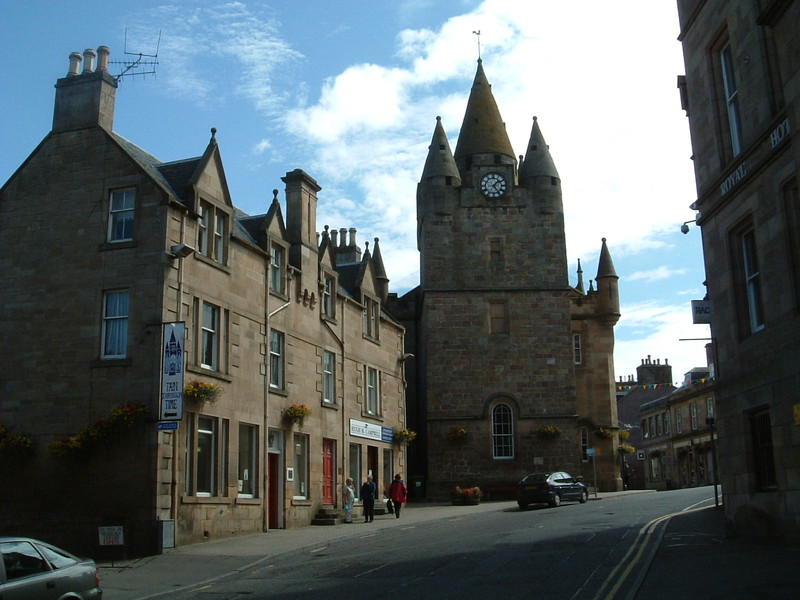
I looked up at the woman barking at me from the table, her pasty skin and faded tattoos making her look much older than she actually was. 'Take yer 'at off mister,' she continued, pointing at my hat, 'he don't like people with 'ats.' So I took it off, smiling nervously at her scraggly friends and thanking my lucky stars that these particular crusties didn't keep their mutt on a piece of string.
Meanwhile the other woman on the table started yelling at the tattooed vision opposite her, blaming her for making the dog all excited and telling it to attack us. Once she'd calmed down she upheld hundreds of years of dog-owning tradition by telling me that, despite extraordinary evidence to the contrary, the slavering bag of strained muscle and drooling fangs at her feet was actually a big softie and wouldn't hurt a fly. I smiled even more nervously and politely made small talk until Barry reappeared with the beer, when luckily the two men drinking with our neighbours – who had remained ominously quiet throughout the whole episode – distracted their attention away from us by picking a fight with a man innocently walking across the car park.
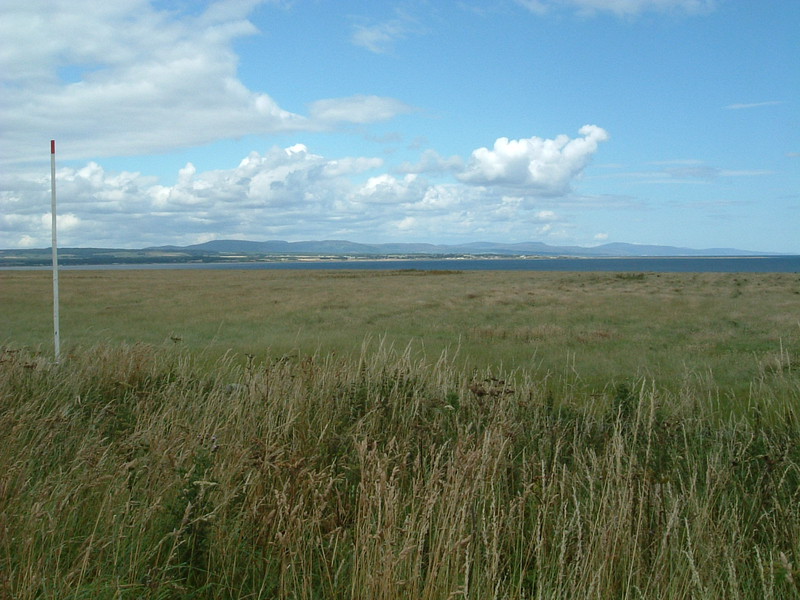
The thing that struck me most about the people on the next table wasn't the fact that they obviously hated the world and wanted to piss everyone off; there's nothing original about being a disaffected punk now that we've celebrated the silver jubilee of 'God Save the Queen', but it doesn't stop people trying. No, the thing I noticed was the way they spoke. Two of them were English, one was Irish and one was Scottish, but they all spoke the same dialect, and it's the same dialect you hear whenever the terminally stupid collect together. In a sense it's a clever dialect, because it uses the rules of grammar to good effect, but the result is always the same; it's the sound of a school career spent anywhere but school.
Consider this phrase, which was one of the more intelligible parts of the conversation Barry and I overheard in the St Duthus:
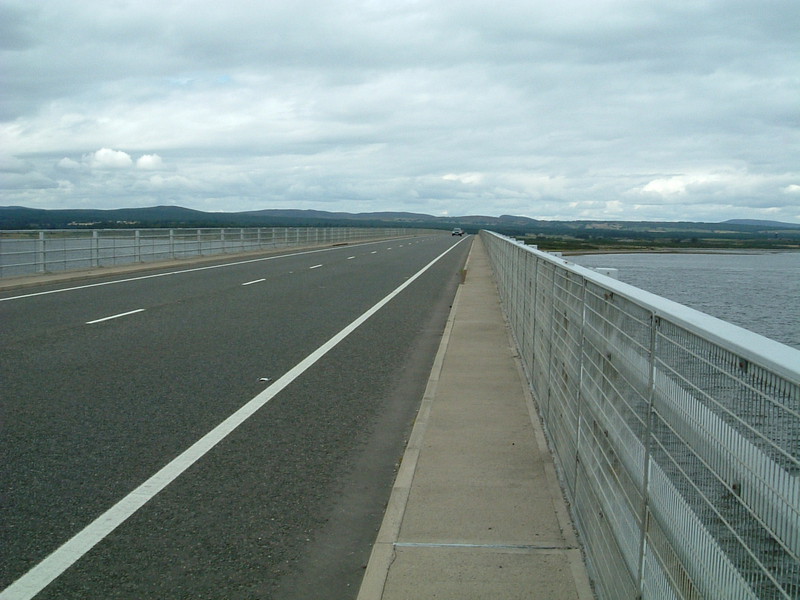
I've got to go to the cash point because I've got no money and I can't spend the rest of the day without any cash.
You might hear anyone say this; it's nothing special. But in the dialect of the terminally thick, you have to follow a special rule – one rule only – that turns this normal piece of communication into something rather special. The rule is to insert one particular word into the sentence as many times as you can, just as long as you follow the rules of normal grammar. Here's what Barry and I actually heard, after the human mutt next to us had mangled it through her own personal dialect:
I've fookin' got to fookin' go to the fookin' cash point because I've got no fookin' money and I fookin' can't spend the fookin' rest of the fookin' day without any fookin' cash.
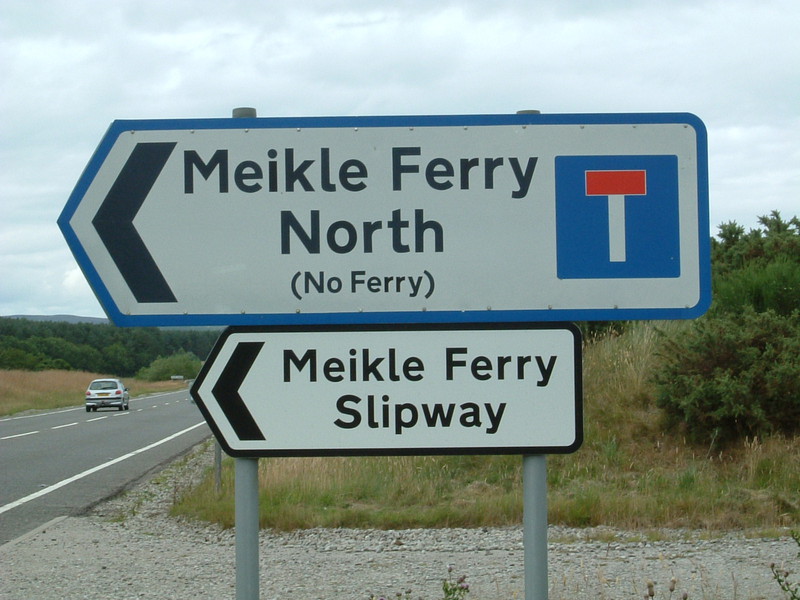
Ta-da! Instant anti-establishment anarchy, at the touch of a button! You too can play this game, at home or in public, but make sure you turn the volume levels up nice and high, because then everyone can join in. It's a useful game, too, because if you're particularly dim and have problems thinking of which word comes next in your chosen sentence, then adding in the word 'fookin'' at every opportunity can double the length of your sentences, giving you twice as much time to worry about which word you should be picking from your vocabulary of 100 useful words.
Who needs school when you've got a dog on a chain, faded tattoos and a dialect like this? Quite obviously not the fookin' morons who sat next to Barry and me in the St Duthus. You wouldn't hear this sort of language in a Wetherspoon pub, you know...